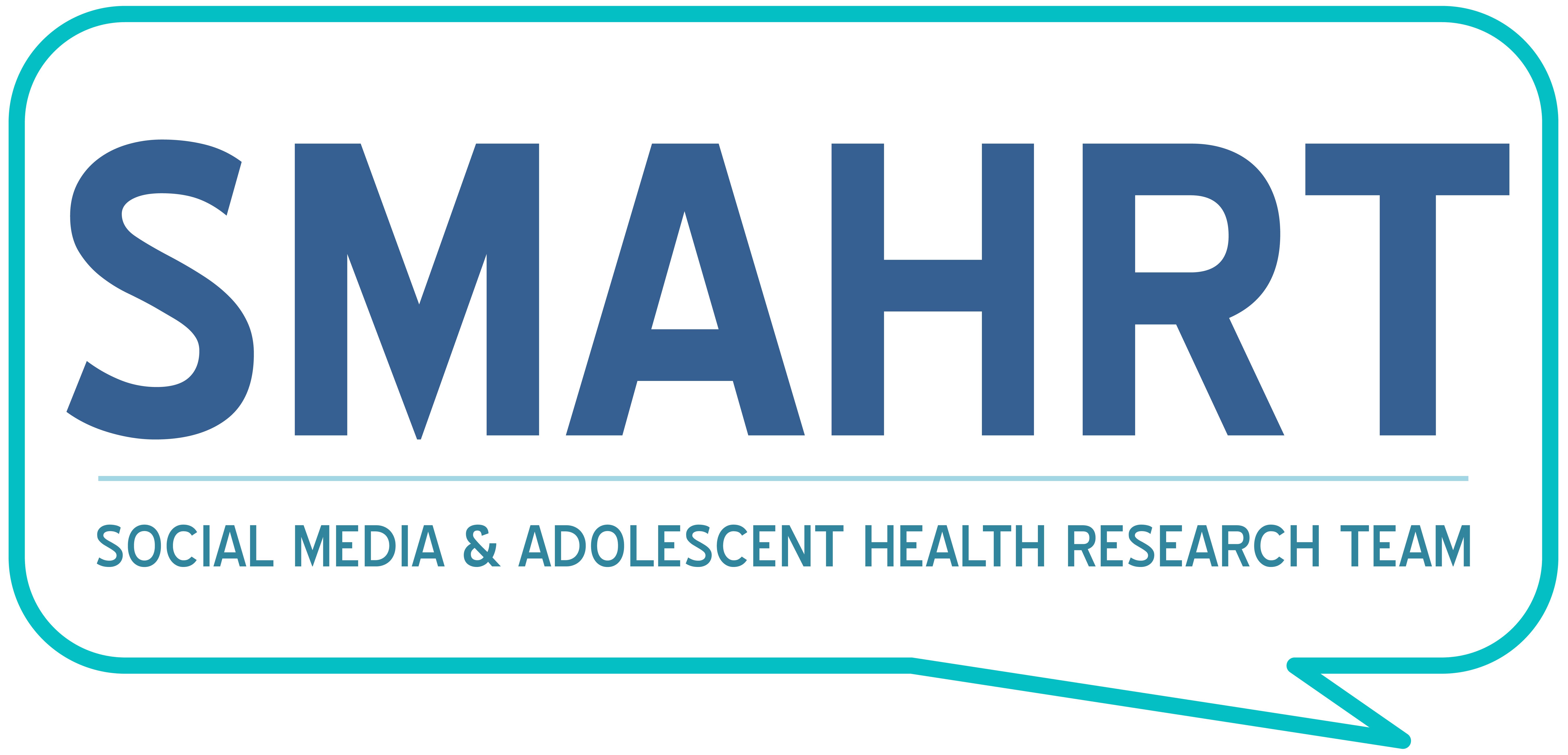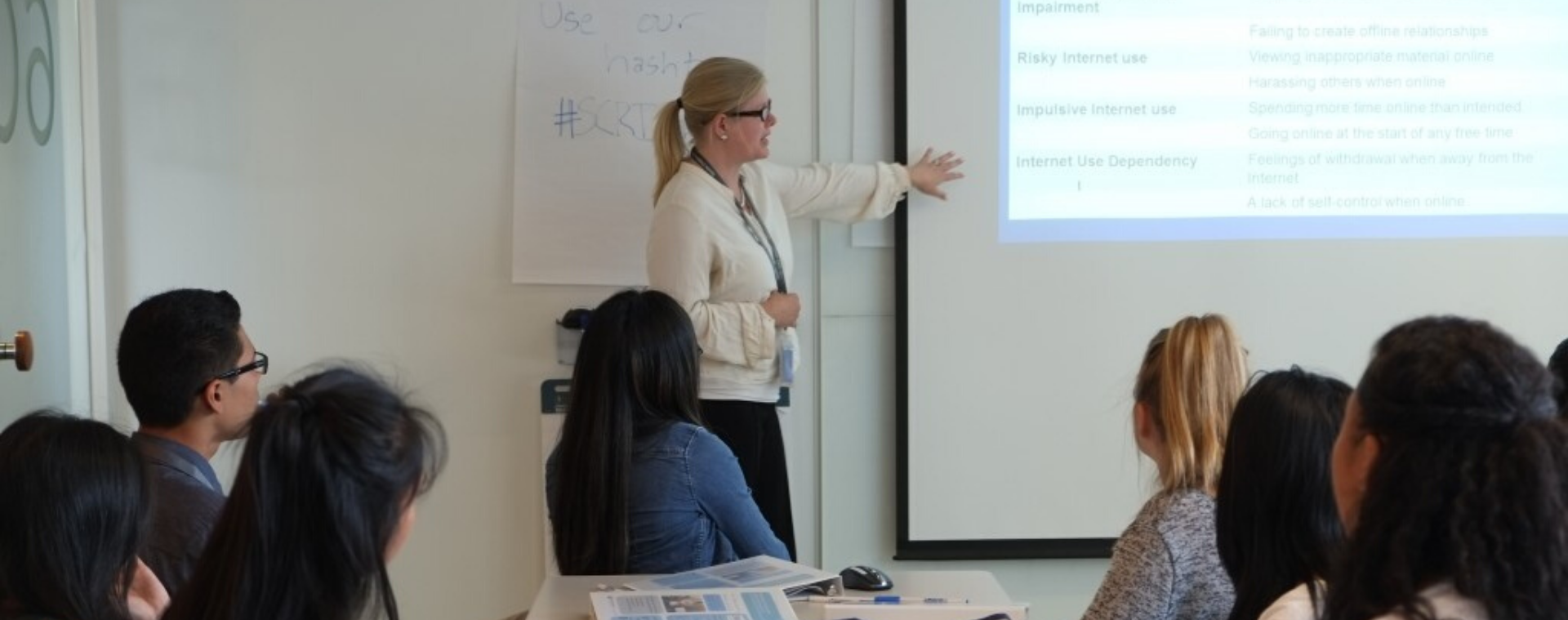By Anna Jolliff, MS

Last week, a couple of SMAHRTies had the privilege of visiting a local high school to discuss research and tell teens about our summer research program for teens, Summer Research Scholars (SRS). SRS gives teens the opportunity to conduct their own independent research project and familiarize themselves with careers in the health sciences. After we introduced the class to one of our core areas of research at SMAHRT – technology use and misuse – one student asked: “Do your findings ever make people mad?”
This a great question. At SMAHRT, we read and discuss news stories, popular videos, and academic articles on a weekly basis that debate whether technology use is something to get “mad” about. There isn’t a clear answer. Some scientists, journalists, and other community members argue that technology irreversibly (and frighteningly) changes our brains, while others argue that we don’t yet have sufficient evidence for that yet. Some say that we should be worried that the current generation of adolescents “never looksup from their phones,” while others say that the general decline in other risky behaviors (alcohol use, unsafe sex) more than makes up for the proliferation of time spent on Instagram and Snapchat. Some argue that we are “addicted” to our phones, while others say we are addicted instead to what phones can provide: nearly constant social interaction.
Health science and social science are unique insofar as the average person has some of the tools (namely, observation) to develop theories of their own. When it comes to technology, we observe on a daily basis how it affects both our own behavior and that of the people around us. On one hand, this is a great thing; everyone gets to feel like a scientist. On the other hand, when research does not neatly support one perspective over another, people can get a little – well — mad. Topics which are in no way resolved – for example, Is technology bad for you? – just feel like the answers are obvious. “Of course we’re addicted to our phones!”
I would argue, and I think most SMAHRTies would agree, that debate and disagreement is part of what makes research fun. Even after the data is collected and the results are in, we don’t have an answer. All we have – all we ever have – is converging or diverging evidence. That, and a reason to do more research!

